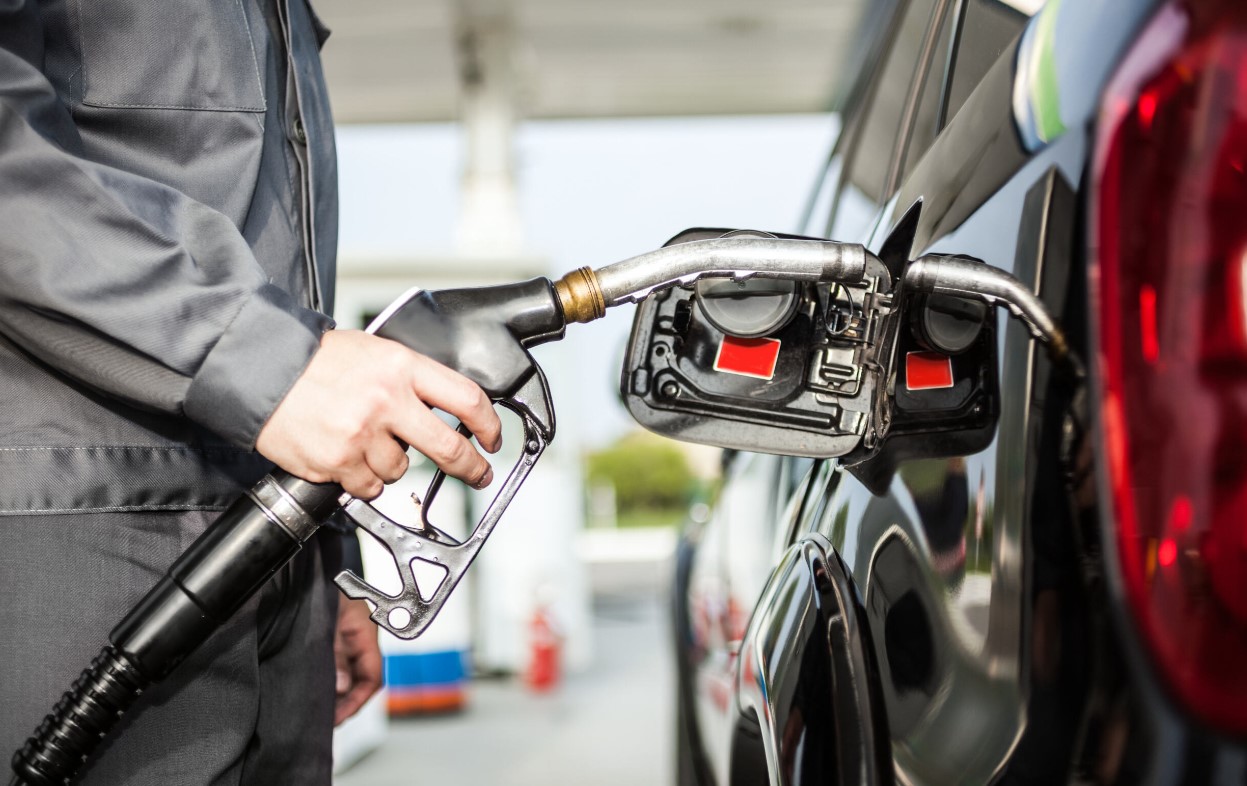Is Your Car Suddenly Using More Gas? 9 Causes to Investigate
Nobody has to tell you that gas is expensive. That’s why it pays to keep your vehicle as fuel efficient as possible.. But what happens if your car is suddenly using more gas?
There are nine main reasons gas mileage might dip or take a big nosedive! Here’s what our service department recommends you investigate.
You’ve Got Tire Issues
One of the first things our technicians look for when there’s a sudden loss of fuel efficiency are issues with the vehicle’s tires.
If tires are low on pressure then it’s harder to move the vehicle, and that forces the engine to work harder. Heck, the whole vehicle will be harder to move because the tires won’t be round.
And that means poor gas mileage.
It’s easy to simply check tire pressure with a tire pressure gauge. But what if that isn’t the problem?
It could be the tires are out of balance or misaligned. The best way to check for misaligned tires is to let go of the steering wheel briefly to see if the car continues to move in a straight line. If it doesn’t, the tires are out of alignment.
Also, check tire tread wear to make sure the tires are wearing evenly. If there is uneven wear, it’s time to get your tires aligned and rotated.
Stuck Caliper or Shoe
While you’re checking tire pressure, check the brakes for possible issues. Is there the right amount of brake fluid lubricant? Is the caliper or shoe in the wrong position? These conditions can cause a reduction in gas mileage efficiency.
You could also have a brake with the pad still on the rotor. In this case, the car will be hard to drive, even dangerous.
Take a quick check and if need be, bring it in for service.
Low Oil Level
Our Chevy certified technicians stress to all our customers the importance of checking the oil regularly and having it changed regularly. It’s vital to the health and performance of your car.
Specifically, car oil helps to lubricate the engine. If your oil is old or you don’t have enough of it, the engine has to work harder to do its job, burning more gas and causing excessive wear and tear to the engine.
Consult your owner’s manual for information on how often to get the oil changed.
Mass Airflow Sensor is Defective
A key component of your vehicle’s electronic fuel injection system, the mass air flow sensor measures the air mass flowing into the engine.
If this sensor isn’t working properly or if it’s dirty, the check engine light can come on, but not always.
Besides poor fuel economy, a defective mass airflow sensor may cause the vehicle to hesitate or jerk, cause rough running or misfiring, difficulty starting and turning over the engine, lean idling, and black exhaust smoke.
Sometimes the mass airflow sensor is simply dirty and needs replacing. You don’t want to harm your engine if it’s burning the wrong fuel mix for a long time. Check this sensor and replace, if necessary.
Oxygen Sensor is Dirty
Your oxygen sensor measures the air in the cylinder of the engine before combustion. Then it adds the right amount of gas to the mix. It, too, can become dirty which causes the car to suddenly burn more fuel.
Check this sensor if you notice your mileage slipping.
Dirty Air Filter or Clogged Fuel Injectors
If your vehicle is burning too much gas, it could be the fuel mixture is too rich. Just like a bad sensor, a dirty air filter can cause false readings.
The same is true for fuel injectors. If they are bad, they could fire twice because they are not reading enough gas in the cylinder. A dirty injector may also remain open which leads to more gas consumption.
As part of regular car maintenance, replace dirty air filters and clean the fuel injectors occasionally to ensure they are performing at their peak.
Dirty or Bad Spark Plugs
When fuel efficiency is an issue, check your spark plugs. Not only can dirty or bad spark plugs cause a loss of fuel efficiency, but they can also cause engine damage.
Check to make sure the gap is right and that the spark plugs aren’t corroded or burnt. If one is bad, it’s best to replace all of them to keep the vehicle running smoothly.
Note: While most spark plugs last 100,000 miles or more, they do need to be changed eventually.
Fuel Pump is Faulty
A bad fuel pump may be pumping too much gas into the vehicle’s engine. This happens for a lot of reasons, but one of the main causes is the fuel pump isn’t pumping the right amount of fuel or oil.
Initially, the symptoms may be very subtle, but if you’ve checked other possible causes and there is no improvement. Check your fuel pump.
Your Driving Habits
Speed affects fuel efficiency. So, if you’re speeding frequently, you’re burning more gas. If you have more stop and go driving, you’ll use more gas. Excessive idling can also cause a loss of fuel efficiency.
Notice your driving habits, and where possible, change them to extend the life of your vehicle.
Conclusion
When trying to track down the sudden cause of your car using more gas, check your brakes, fuel pump and injectors, spark plugs, oil level, tires, and your driving habits.
Often, you’ll find the culprit hiding in one of those places.
If you’d like first class automotive maintenance and repair service, turn to our service department. Our Chevy-certified technicians are skilled at working with all makes and models.
And when you’re ready to buy a new Chevy or one of our quality used cars, turn to our sales consultants. We’ll help you find the right vehicle for your lifestyle and budget!
Additionally, Joe Bowman Chevy buyers take priority when scheduling automotive service. Learn more about us on our home page.
There are nine main reasons gas mileage might dip or take a big nosedive! Here’s what our service department recommends you investigate.
You’ve Got Tire Issues
One of the first things our technicians look for when there’s a sudden loss of fuel efficiency are issues with the vehicle’s tires.
If tires are low on pressure then it’s harder to move the vehicle, and that forces the engine to work harder. Heck, the whole vehicle will be harder to move because the tires won’t be round.
And that means poor gas mileage.
It’s easy to simply check tire pressure with a tire pressure gauge. But what if that isn’t the problem?
It could be the tires are out of balance or misaligned. The best way to check for misaligned tires is to let go of the steering wheel briefly to see if the car continues to move in a straight line. If it doesn’t, the tires are out of alignment.
Also, check tire tread wear to make sure the tires are wearing evenly. If there is uneven wear, it’s time to get your tires aligned and rotated.
Stuck Caliper or Shoe
While you’re checking tire pressure, check the brakes for possible issues. Is there the right amount of brake fluid lubricant? Is the caliper or shoe in the wrong position? These conditions can cause a reduction in gas mileage efficiency.
You could also have a brake with the pad still on the rotor. In this case, the car will be hard to drive, even dangerous.
Take a quick check and if need be, bring it in for service.
Low Oil Level
Our Chevy certified technicians stress to all our customers the importance of checking the oil regularly and having it changed regularly. It’s vital to the health and performance of your car.
Specifically, car oil helps to lubricate the engine. If your oil is old or you don’t have enough of it, the engine has to work harder to do its job, burning more gas and causing excessive wear and tear to the engine.
Consult your owner’s manual for information on how often to get the oil changed.
Mass Airflow Sensor is Defective
A key component of your vehicle’s electronic fuel injection system, the mass air flow sensor measures the air mass flowing into the engine.
If this sensor isn’t working properly or if it’s dirty, the check engine light can come on, but not always.
Besides poor fuel economy, a defective mass airflow sensor may cause the vehicle to hesitate or jerk, cause rough running or misfiring, difficulty starting and turning over the engine, lean idling, and black exhaust smoke.
Sometimes the mass airflow sensor is simply dirty and needs replacing. You don’t want to harm your engine if it’s burning the wrong fuel mix for a long time. Check this sensor and replace, if necessary.
Oxygen Sensor is Dirty
Your oxygen sensor measures the air in the cylinder of the engine before combustion. Then it adds the right amount of gas to the mix. It, too, can become dirty which causes the car to suddenly burn more fuel.
Check this sensor if you notice your mileage slipping.
Dirty Air Filter or Clogged Fuel Injectors
If your vehicle is burning too much gas, it could be the fuel mixture is too rich. Just like a bad sensor, a dirty air filter can cause false readings.
The same is true for fuel injectors. If they are bad, they could fire twice because they are not reading enough gas in the cylinder. A dirty injector may also remain open which leads to more gas consumption.
As part of regular car maintenance, replace dirty air filters and clean the fuel injectors occasionally to ensure they are performing at their peak.
Dirty or Bad Spark Plugs
When fuel efficiency is an issue, check your spark plugs. Not only can dirty or bad spark plugs cause a loss of fuel efficiency, but they can also cause engine damage.
Check to make sure the gap is right and that the spark plugs aren’t corroded or burnt. If one is bad, it’s best to replace all of them to keep the vehicle running smoothly.
Note: While most spark plugs last 100,000 miles or more, they do need to be changed eventually.
Fuel Pump is Faulty
A bad fuel pump may be pumping too much gas into the vehicle’s engine. This happens for a lot of reasons, but one of the main causes is the fuel pump isn’t pumping the right amount of fuel or oil.
Initially, the symptoms may be very subtle, but if you’ve checked other possible causes and there is no improvement. Check your fuel pump.
Your Driving Habits
Speed affects fuel efficiency. So, if you’re speeding frequently, you’re burning more gas. If you have more stop and go driving, you’ll use more gas. Excessive idling can also cause a loss of fuel efficiency.
Notice your driving habits, and where possible, change them to extend the life of your vehicle.
Conclusion
When trying to track down the sudden cause of your car using more gas, check your brakes, fuel pump and injectors, spark plugs, oil level, tires, and your driving habits.
Often, you’ll find the culprit hiding in one of those places.
If you’d like first class automotive maintenance and repair service, turn to our service department. Our Chevy-certified technicians are skilled at working with all makes and models.
And when you’re ready to buy a new Chevy or one of our quality used cars, turn to our sales consultants. We’ll help you find the right vehicle for your lifestyle and budget!
Additionally, Joe Bowman Chevy buyers take priority when scheduling automotive service. Learn more about us on our home page.


